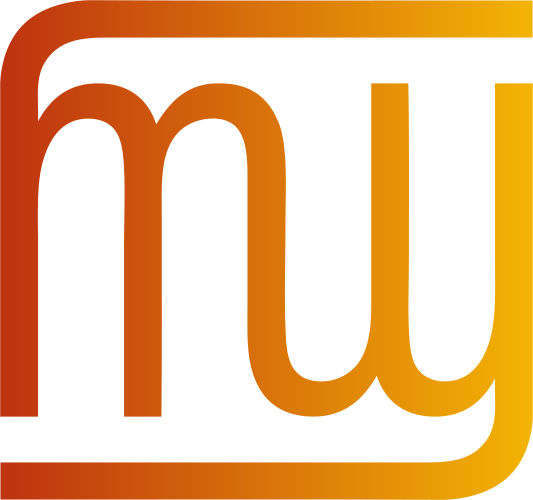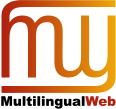
The W3C Internationalization (I18n) Activity works with W3C working groups and liaises with other organizations to make it possible to use Web technologies with different languages, scripts, and cultures. From this page you can find articles and other resources about Web internationalization, and information about the groups that make up the Activity. Read also about opportunities to participate and fund work via the new Sponsorship Program.
What the W3C Internationalization Activity does
Selected quick links
Selected quick links
Selected quick links
Linguistic Linked Data in selected domains: 5th and 6th LIDER Roadmapping Workshops to be held in July 2015

For both workshops participation is limited. If you are interested in the Rome event please contact Tiziano Flati, for Munich please contact Philipp Cimiano.
Announcing The Unicode® Standard, Version 8.0
Version 8.0 of the Unicode Standard is now available. It includes 41 new emoji characters (including five modifiers for diversity), 5,771 new ideographs for Chinese, Japanese, and Korean, the new Georgian lari currency symbol, and 86 lowercase Cherokee syllables. It also adds letters to existing scripts to support Arwi (the Tamil language written in the Arabic script), the Ik language in Uganda, Kulango in the Côte d’Ivoire, and other languages of Africa. In total, this version adds 7,716 new characters and six new scripts. For full details on Version 8.0, see Unicode 8.0.
The first version of Unicode Technical Report #51, Unicode Emoji is being released at the same time. That document describes the new emoji characters. It provides design guidelines and data for improving emoji interoperability across platforms, gives background information about emoji symbols, and describes how they are selected for inclusion in the Unicode Standard. The data is used to support emoji characters in implementations, specifying which symbols are commonly displayed as emoji, how the new skin-tone modifiers work, and how composite emoji can be formed with joiners. The Unicode website now supplies charts of emoji characters, showing vendor variations and providing other useful information.
Some of the changes in Version 8.0 and associated Unicode technical standards may require modifications in implementations. For more information, see Unicode 8.0 Migration and the migration sections of UTS #10, UTS #39, and UTS #46.
Provide input to the planning of the Big Data Value Chain: Contribute to BDVA Summit 18-19 June, Madrid
In the context of the Big Data Value Association Madrid Summit, 17-19th June, there are two sessions of specific relevance to standards and also to multilingualism: on 18th June a session on standardization, and on 19th June a session on Multilingual Data Value Chains. If you want to have an active participation in both sessions or want to provide further feedback, please contact Felix Sasaki <fsasaki@w3.org> on Standardization and Asun Gomez-Perez <asun@fi.upm.es> on Multilingual Data Value Chains. Presentation will be short in order to promote a wide participation.
If you cannot be in Madrid please also provide your input – see above session links for further instructions. The BDVA Summit will be crucial in shaping upcoming funding opportunities related to Big Data. Don’t miss the chance to describe your views on opportunities, challenges and potential solutions for the Big Data Value Chain!
Updated articles: Working with language in HTML; Creating HTML Pages in Arabic, Hebrew and Other Right-to-left Scripts
Lists of referenced article contents were removed from both the language tutorial and the bidi tutorial to make it easier to keep the page up to date. The note about HTML5 not being stable was also removed. ‘(tutorial)’ was added to the title of the documents.
Updated article: Handling character encodings in HTML and CSS
The paragraph about CSS encoding declarations in the “In a nutshell” section was changed from:
“Use the @charset rule for external style sheets (but not CSS in your HTML page) if you have non-ASCII content, such as font names, ids or class names, etc.”
to
“You can use @charset or HTTP headers to declare the encoding of your style sheet, but you only need to do so if your style sheet contains non-ASCII characters and, for some reason, you can’t rely on the encoding of the HTML and the associated style sheet to be the same.”
Update 3 June:
Additional changes were made throughout the page. In particular, lists of article content were removed to make it easier to keep the tutorial page up to date.
Updated article: Using <b> and <i> elements
This article was updated to reflect the latest version of text quoted from the HTML5 spec. In addition, editorial changes were made to improve the readability of the article and bring it in line with more recent templates.
Translators are requested to update the German, Spanish, Hungarian, Portuguese, Russian and Ukrainian translations appropriately.
Recent translations into French
Conseils pratiques sur l’internationalisation du Web (Internationalization Quick Tips for the Web)
Présentation des jeux et encodages de caractères (Introducing Character Sets and Encodings)
Langage sur le Web (Language on the Web)
Localisation vs Internationalisation (Localization vs. Internationalization)
Capacités d’affichage (Display capabilities)
These articles were translated into French thanks to the French Translation Team, Language Marketplace Inc.
Updated Working Draft: Language Tags and Locale Identifiers for the World Wide Web
Language Tags and Locale Identifiers for the World Wide Web describes the best practices for identifying or selecting the language of content as well as the the locale preferences used to process or display data values and other information on the Web. It describes how document formats, specifications, and implementations should handle language tags, as well as extensions to language tags that describe the cultural or linguistic preferences referred to in internationalization as a “locale”.
Changes in this update include the following: All references to RFC3066bis were updated to BCP 47 or to RFC5646 or RFC 4647 as appropriate.References to HTML were changed to point to HTML5. Imported and rewrote the text formerly containing in Web Services Internationalization Usage Scenarios defining internationalization, locale, and other important terms. Modified and reorganized the other sections of this document. Moved the Web services materials to an appendix.
Updated Working Draft: Requirements for Hangul Text Layout and Typography
The updated Working Draft of Requirements for Hangul Text Layout and Typography brings the English version of the draft into line with a number of changes prompted by feedback that were added to the editor’s copy. Notes pointing to as yet unresolved comments were also added to the document. It also points to the new location of the editor’s draft, on github, and suggest the use of github issues for future comments.
The document describes requirements for general Korean language/Hangul text layout and typography realized with technologies like CSS, SVG and XSL-FO. The document is mainly based on a project to develop the international standard for Korean text layout.
Updated article: Character encodings for beginners
This article was updated to emphasize that UTF-8 should be the default character encoding on the Web. In addition, editorial changes were made to improve the readability of the article and bring it in line with more recent templates.
Translators are requested to update their translations appropriately.
W3C® liability, trademark and permissive license rules apply.
Questions or comments? ishida@w3.org